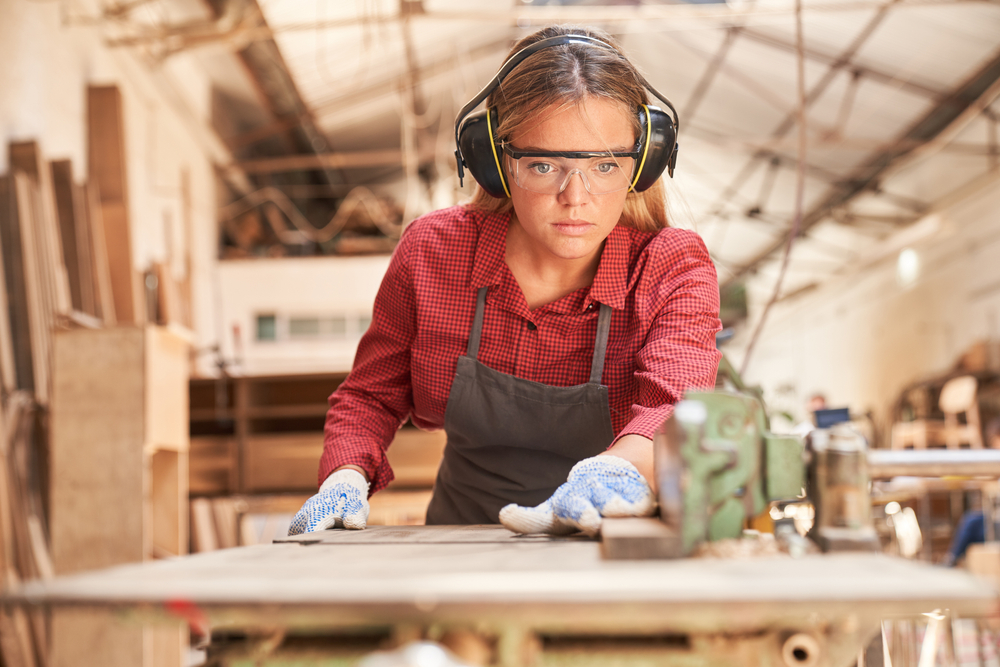
Hearing protection plays a critical role in protecting your ears against harmful noise levels, whether at work, concerts, or even while doing DIY projects at home. However, you could be left exposed to potential risks if any one of several potential factors interferes with your hearing protection’s effectiveness. In order to understand and effectively maximize the advantages of your ear protection, it’s crucial to understand these issues.
Common reasons why hearing protection fails
Even when you observe best practices, unforeseen issues can occur. You use your earmuffs faithfully at work, wear earplugs at concerts, and avoid noisy situations whenever possible. Yet, some variables can still disrupt your hearing protection’s efficiency. Fortunately, by recognizing these common pitfalls, you can make informed adjustments to ensure your hearing is always well-protected.
1. Specific situations call for specific types of hearing protection
The effectiveness of hearing protection can be decreased by choosing the wrong type for the given situation.
In general, hearing protection falls into two main categories:
- Earplugs: Little foam or rubber plugs that tuck securely into the ear canal.
- Earmuffs: Larger devices that cover the entire ear, similar to headphones.
There is an ideal type for each situation:
- Locations with a continual noise threshold, including a factory floor or the cabin of an airliner, are the perfect times to utilize earplugs.
- Earmuffs are better for situations with periodic noise, like a construction site where machinery starts and stops frequently.
Earmuffs are easier to handle when there is a need to frequently put on and remove your hearing protection. However, earplugs, especially disposable ones, can be easily lost, leaving you unprotected when noise levels spike again. Choosing the right hearing protection for your needs is the first step toward safeguarding your hearing effectively.
2. Individual anatomy effects fit and effectiveness
Some devices will fit better than others based on the size and shape of the individual’s ears. Basic earplugs and earmuffs are often designed for average dimensions, but your ear anatomy may require a more individualized solution.
- Larger ear structures: Bigger ears can make earmuffs uncomfortable, causing gaps in the seal that allow noise to enter.
- Smaller ear canals: The noise-blocking capability of standard-sized earplugs might not be effective if smaller ear canals impede the formation of a proper seal.
If your hearing protection doesn’t fit properly, you may become discouraged and decide to quit using them altogether which can endanger your hearing. Think about buying custom-fitted earplugs or professionally fitted earmuffs if you spend a great deal of time in loud settings. These tailored solutions provide optimal comfort and effectiveness, ensuring you stay protected in any situation.
3. Failing to maintain or replace hearing protection
In order to remain effective, hearing protection devices need to be correctly maintained just like any other devices do. Wear and tear, incorrect cleaning, and disregarding replacement schedules can all undermine their ability to protect your ears.
The following are a number of tips on how to maintain hearing protection:
- Clean Properly: Debris and earwax can accumulate on your hearing protection over time. Clean them regularly using manufacturer-recommended techniques to ensure cleanliness without damaging the material.
- Inspect for Damage: Frequently inspect the elastic band on earmuffs. Their ability to efficiently block noise can be jeopardized if the elastic band is loose or stretched.
- Replace Cushions: The flexibility of earmuff cushions can decrease over time. In order to maintain a proper seal, replace the cushions when needed.
Your hearing protection will be less effective and potentially unusable if you disregard these simple maintenance duties. Regular maintenance is crucial to extend their lifespan and ensure reliable performance.
The role of a hearing specialist
If you’re uncertain whether your hearing protection is getting the job done, schedule an evaluation appointment with us. We can check your present devices, suggest alternatives, and even offer custom solutions tailored to your particular requirements.
Keeping your hearing safe is a commitment that lasts a lifetime and it’s essential that you do it with the right tools. By addressing these common challenges, you can confidently safeguard your ears from harmful noise and preserve your hearing for years to come.
